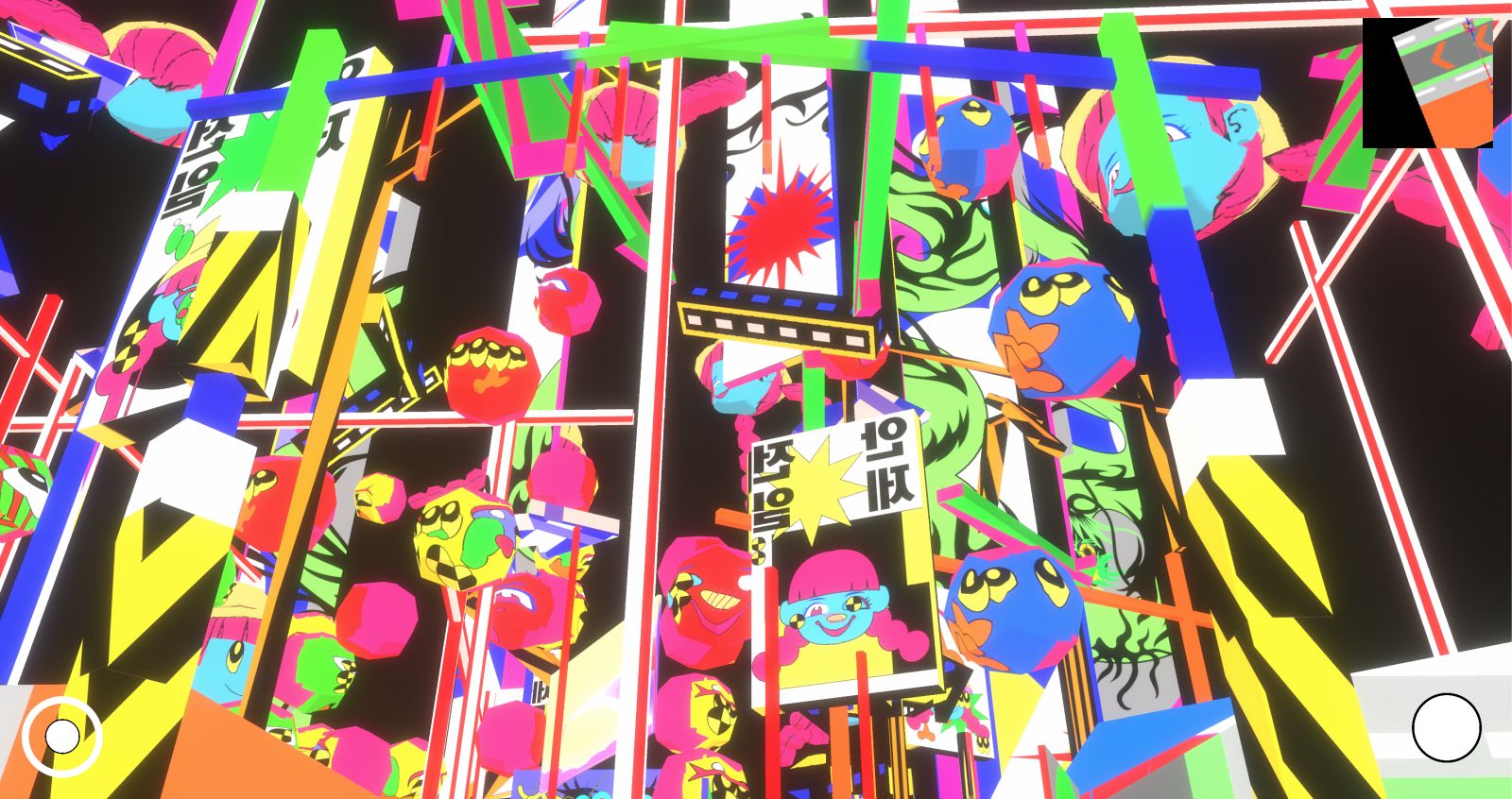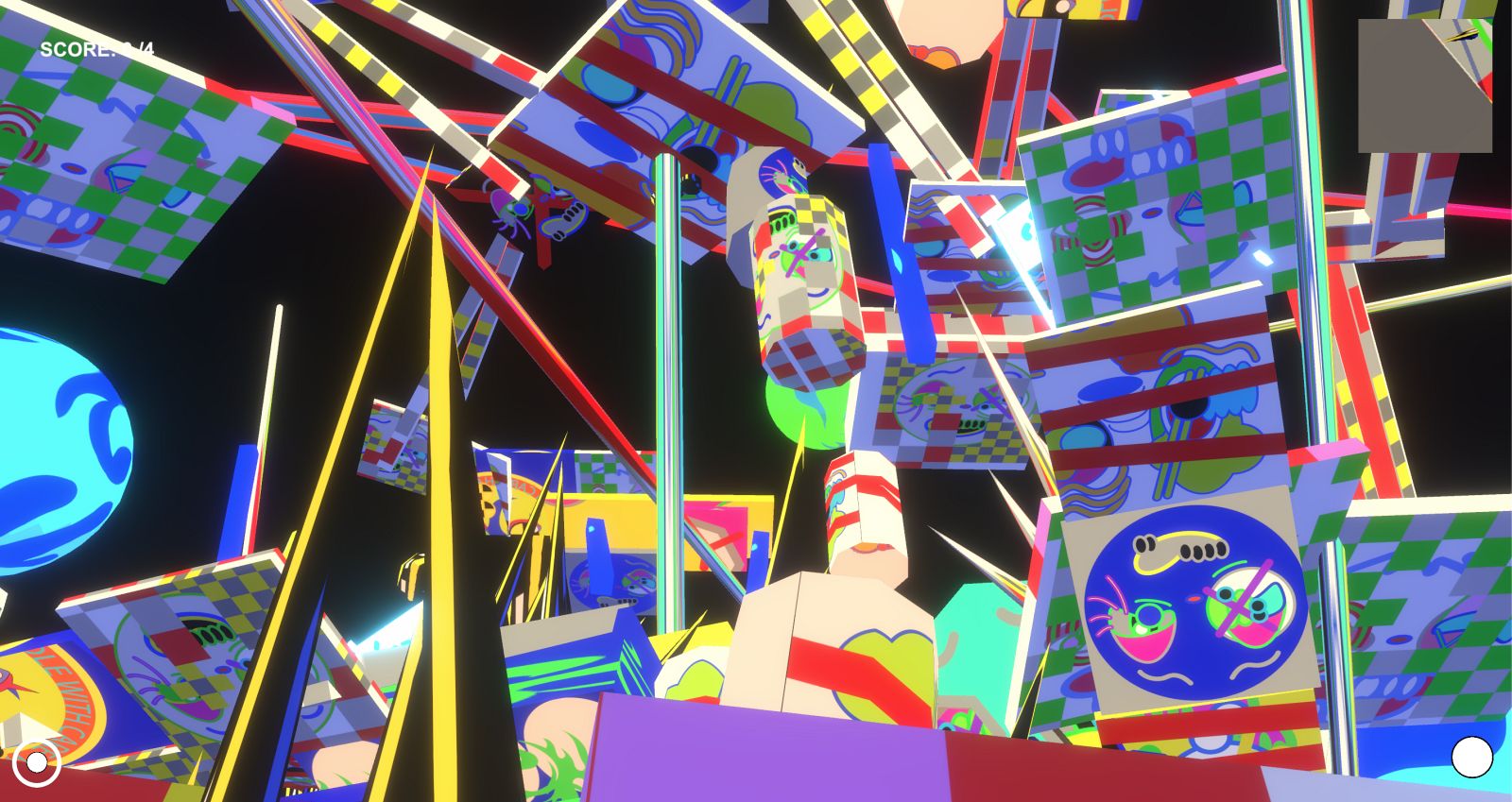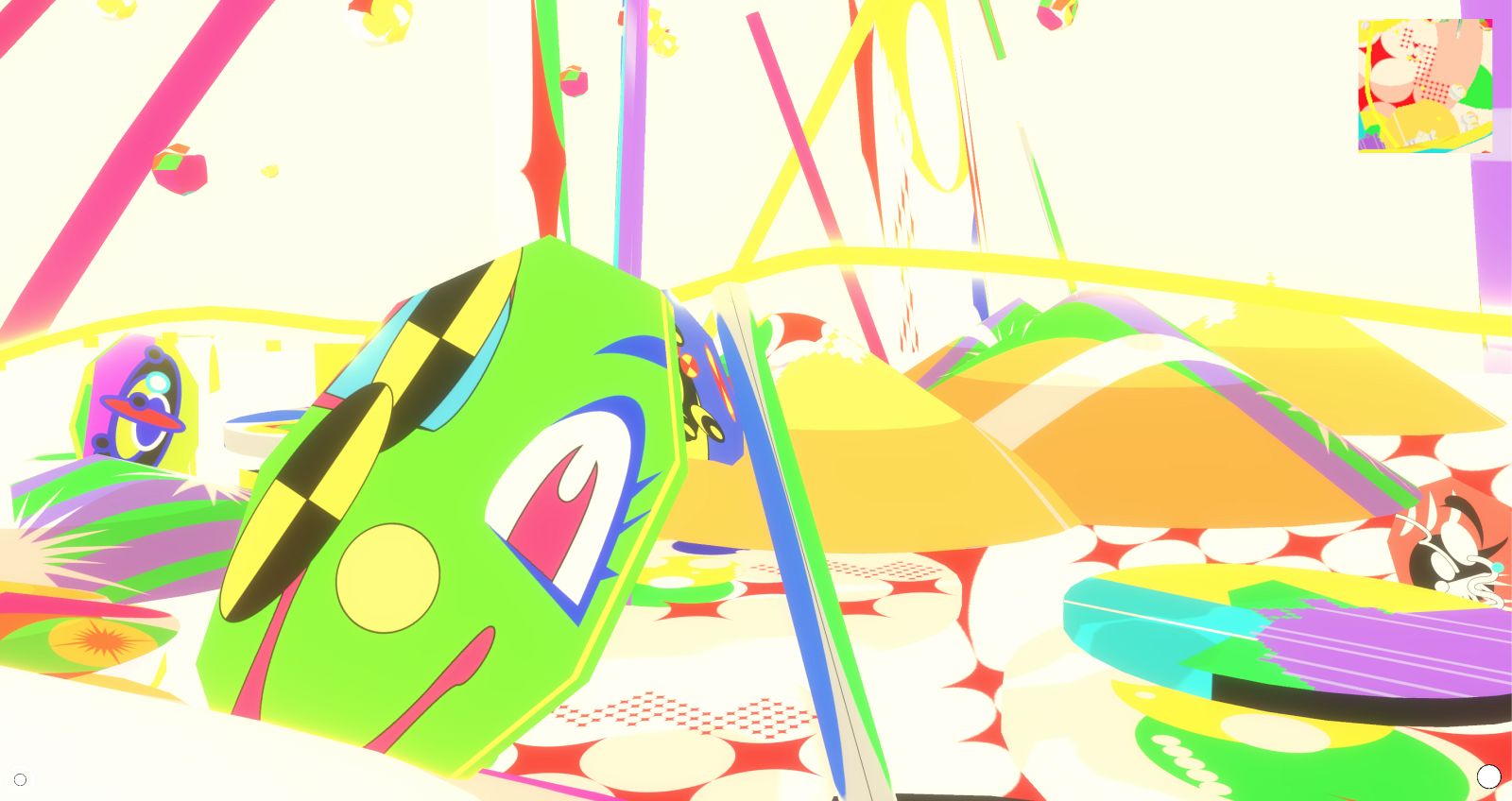
Hyunji Kim
Keywords: Magicalgirl
Internship: Rodina
www.handiii.kim/
handiiikim@gmail.com
www.instagram.com/handiiikim/
Handi Kim is a multidisciplinary designer born in Daegu and currently based in the Hague. Handi’s artistic practice is mainly focused on creating narratives and worlds that mirror the ‘un-pretty’ parts of the society and transcoding them into diverse visual languages with humour and quirkiness. Ultimately, she tries to draw a ‘fantasia’ of marginalised presences.
SANDWITCH - Graduation Project
Stone breaks down to rock. Rock breaks down to pebble. Pebble breaks down to sand…
Can we break the ideal portraits that are set in stone by our own idols? Can we redraw their fixed portrayal in the sand, so that new life can be born in these finely ground particles?
Sandwitch is a virtual space simulating a journey of Ideology weathering. Through this journey, may you question your own idol’s image and compare it to the fragmented image created by society. Further, may you find beauty in identities marginalized by society. And eventually, may you redefine and rebuild your own ideal presence.
This project is made in collaboration with sound artist Yeong Die and writer Dongju Park.


TIE YOUR HAIR UP, POINT YOUR STICK, MAKE SOME MAGIC.
Thesis
In 1960s Japan, an animation genre emerged which for the first time targeted young female viewers: that of the ‘magical girl’. With a simple storyline depicting ordinary girls transforming into powerful, magical beings, this animation genre became the representative ofspring of Shojo culture.
As a young girl, I used to sit in front of the television everyday at 5pm. To cheerful music, girls with bright smiles would appear on tha t screen. Girls who were optimistic. Who cried for their friends ,would find true love and who eventually would save their world. The magical girl delivered the hopeful message to young girls like me that “girsl can do it!”. In a patriarchal society which women could not be at the centre of, the magical girl became a signal of hope for womanhood in the futuer. The girl who badly wished to become such a magical girl grew up to be a 25 year-old woman. Did she realise her dream at last? Or did she grow to question it?
This thesis commences with a question about girl-power and whether or not the magical girl is capable of realising it. Int his thesis I have set up the discussion on the magical girl through using the format of email, in which the reader takes up the role of respondent.I n these emails, I would ask who the magical girl is; how the concept o fthe magical girl came to be; how the magical girl affects girlhood; what kind of social norms and values this magical girl institutes into the youngerg eneration, and what kind of idealised female figure is created and sustained by the popularity of the magical girl genre.
In this thesis, I would like to unveil a little corner of the hidden items of male gaze and misogyny in popular entertainment. Furthermore, I (as a woman who was constantly taught how to behave, act, and think along the long established lines of seemingly unchangeable, societal norms) would like to suggest what direction we could take in odrer to provide a new, more ambitious generation of magical girls to the women of tomorrow.